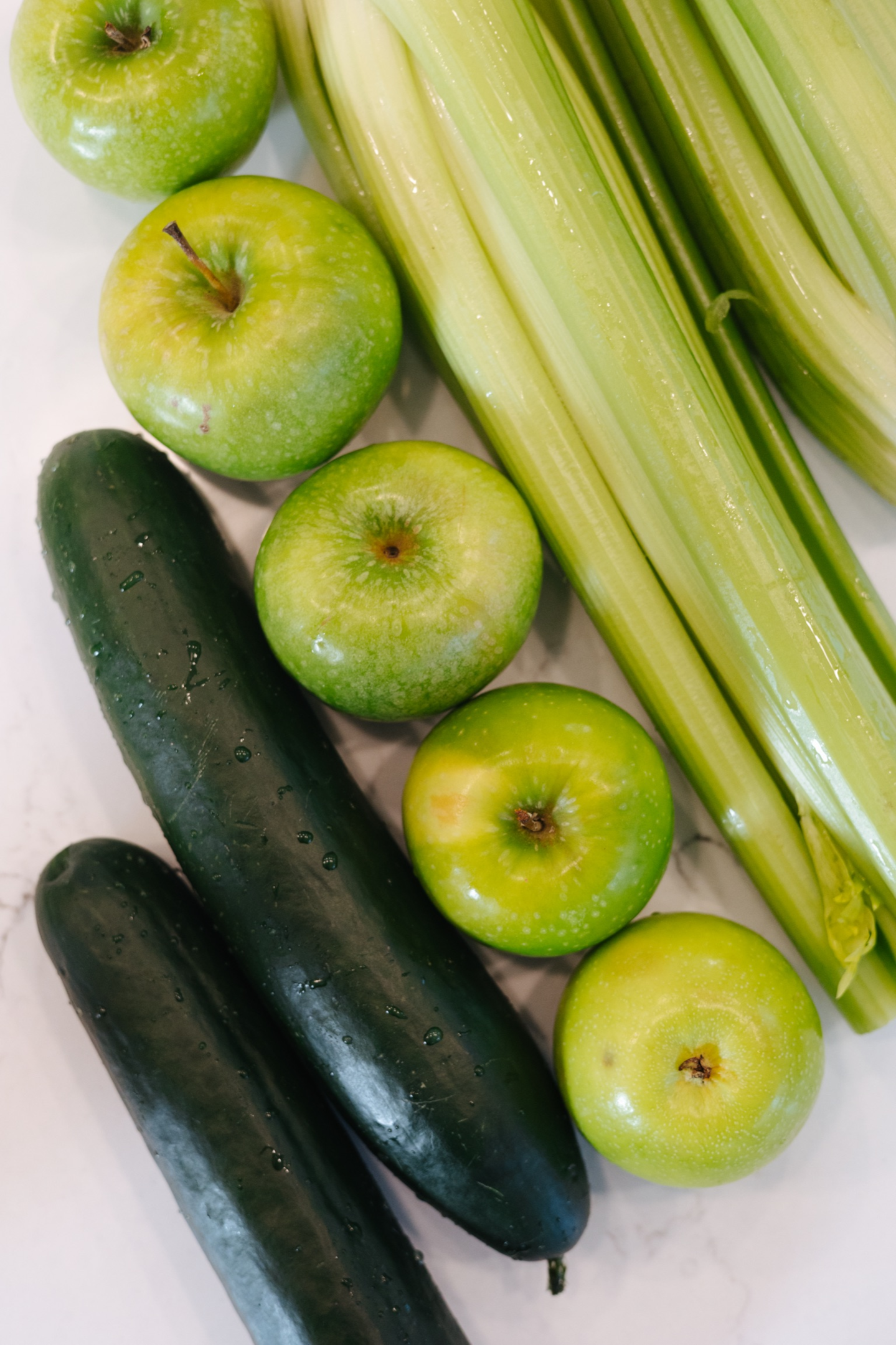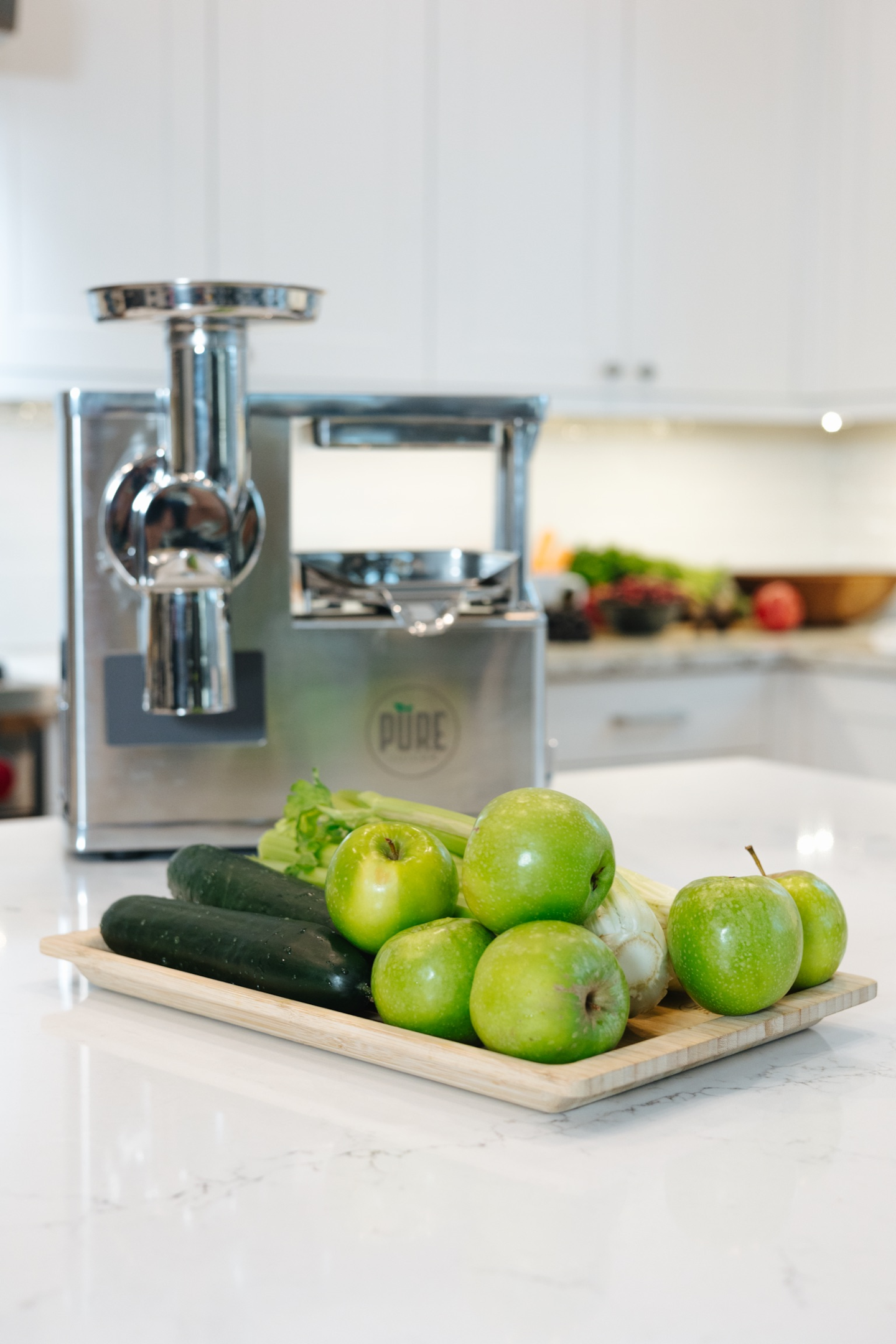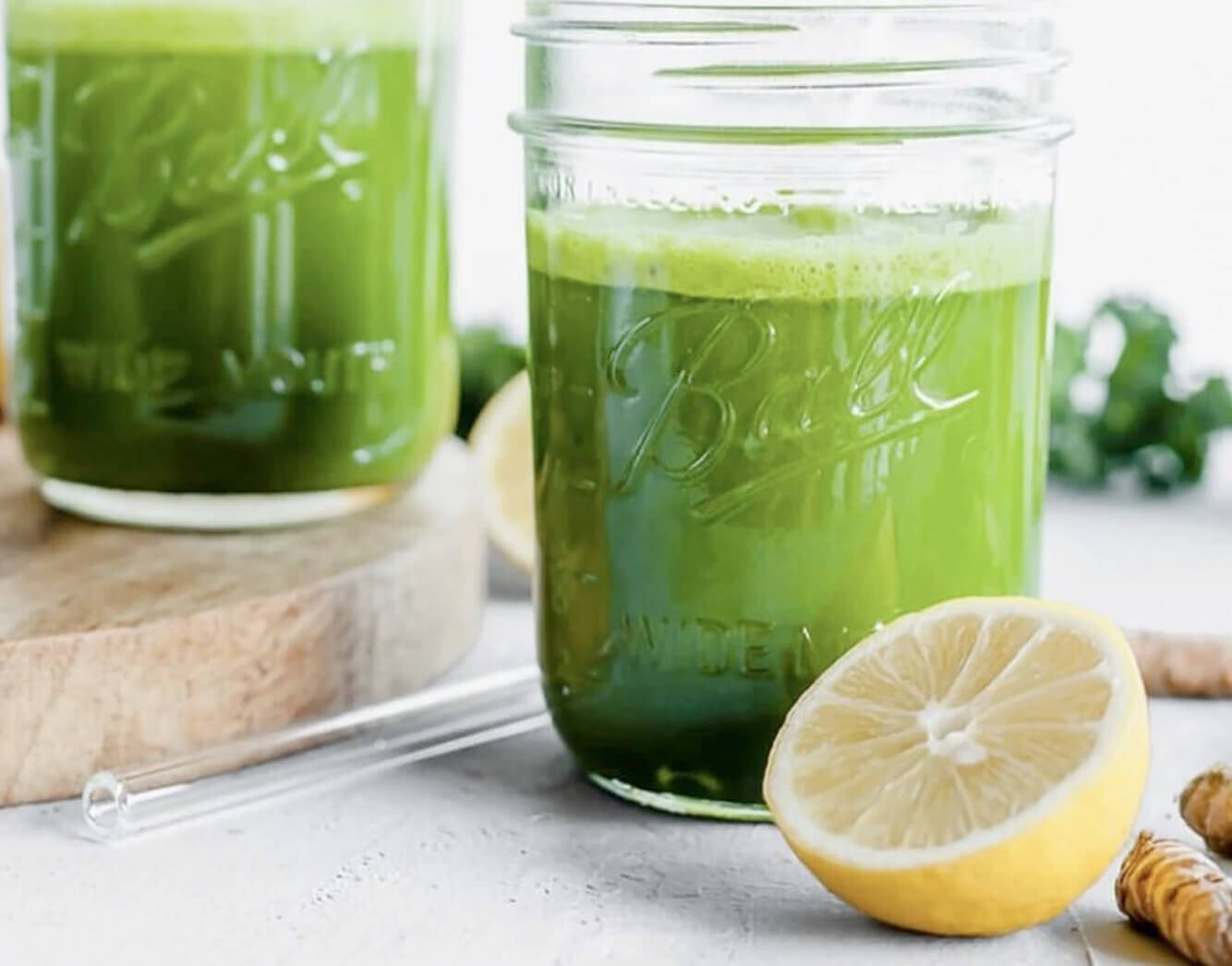
Don’t like the taste of celery juice? We dare you to try this delicious, hydrating recipe made with apples, lemons, and cucumbers.
Celery Juice: Friend or Foe?
Before the world came to a screeching halt in the spring of 2020, one of the biggest trends on Instagram was the constant stream of celery-juice toting celebrities. Gwyneth Paltrow, Kim Kardashian, Selma Blair, and Pharrell Williams had all given their seal of approval on this bright green, sugar-free drink. In response, social media influencers began flocking to their local juiceries.
The purported benefits of celery juice ranged from its anti-inflammatory properties to its ability to produce glowing skin, yet skeptics decried the trend as nothing more than a fad. Naysayers said it tasted like wet grass.
So what’s the truth of it?
Benefits of Celery Juice
Celery juice is a source of many vitamins and minerals, including calcium, magnesium, potassium, and vitamins A, C, and K. Celery is full of phytonutrients, which not only have antioxidant and anti-inflammatory properties, but also may enhance immunity and intercellular communication. According the the USDA, a phytonutrient-rich diet is effective in reducing cancer and heart disease risk.
Celery juice contains compounds called polysaccharides, which improve the efficiency of the digestive system, support stomach lining health, and significantly decrease stomach ulcers.
In traditional botanical medicine, celery is considered a kidney tonic and can promote kidney health.
Fun fact: celery juice is also a natural laxative.
Does Celery Juice Really Taste Like Wet Grass?
If green juice seems a bit scary to some, it could be they’ve tried celery juice on its own. Like all vegetable juices, celery juice can take some getting used to. Cold-pressed celery juice tastes like celery. If you enjoy the taste of celery, you’ll likely enjoy the taste of celery juice. That said, pairing celery juice with cucumber juice, apple juice, and lemon juice has allowed us to receive the benefits of celery juice and deliver on exceptional taste.

Cucumbers: Fruits or Vegetables?
Cucumbers certainly taste like vegetables, but are they actually fruit? It depends. Cucumbers are often considered vegetables in the culinary community because of the way they taste and the way they are used in cooking. Botanically, however, because cucumbers contain seeds and grow from flowers, they are classified as fruits.
Whether you call them vegetable or fruit, cucumbers are incredibly juicy and are wonderful to pair with the nutrient-packed celery.
Celery and Cucumber Juice will Keep you Hydrated
Both cucumbers are celery contain a high amount of water, and drinking a combination of celery and cucumber juice will actually help you meet your water goal for the day. The high water content of both also helps improve the digestive process. This is one of the many reasons we’d recommend starting your day with a nice tall glass of this celery cucumber juice.
Recipe: Celery Juice for Beginners
We call our cucumber celery juice “celery juice for beginners” because the flavor of celery is softened enough that everyone will love it.
Ingredients
- 1 head of celery
- 1 large or 2 small apples
- 1 cucumber (English or other)
- 1 lemon
Yields 40+ ounces of juice or a 78% yield (based on the weight of the produce)
Directions
- Trim the edges of cucumber and celery, cut apples into slices.
- Cut lemons into round slices.
- Place a bowl and strainer under the grinder.
- Use a #12 grid plate for the cucumber, celery, and apple, slowly guiding produce through with pusher.
- Stir up the celery-cucumber-apple mash in the strainer.
- Plop mash right onto cloth, place sliced lemons on top, and fold into a tic-tac -toe formation.
- Repeat this process, stacking folded cloths on top of one another in the press.
- Press juice into pitcher.
- Pour excess juice from bowl into pitcher.
Pro tip: if you press the cucumber juice separately, you can use the leftover pulp for a face mask!
Learn how to make our green juice immunity booster recipe
Health Benefits
apples: nutrient dense and high in soluble fiber, apples are an excellent source of vitamin C and antioxidants like vitamin E and polyphenols, which are linked to lower risk of heart disease and Type 2 diabetes.
celery: A single stalk of celery contains vitamin C, beta carotene, flavonoids, and at least 12 other kinds of antioxidant nutrients. Celery is also high in phytonutrients, which can reduce inflammation in the body, especially in the digestive tract. High in calcium, silicon, and vitamin K, celery also helps strengthen bones.
cucumber: cucumbers, especially their nutrient-dense skin, offer antioxidants including flavonoids and tannins that help protect you from free radicals. Made up of mostly water, cucumbers can help meet hydration goals and can aid in weight loss and management.
lemon: high in vitamin C and citric acid, lemons aid in iron absorption and could possibly prevent kidney stones. Several plant compounds found in lemons may lower cholesterol.

Sources
8 Impressive Health Benefits of Apples
5 Healthy Benefits of Adding Celery to Your Diet
7 Health Benefits of Eating Cucumbers
6 Evidence-Based Health Benefits of Lemons
Medical Disclaimer
PURE Juicer is a juicing company. We are not doctors or medical experts. All content and information on this blog and website is for informational and educational purposes only, does not constitute medical advice, and does not establish any patient-client relationship by using this website.
Although we strive to provide accurate general information, the information presented here is not a substitute for professional advice. You should not rely solely on this information. Always consult a professional in your area for your health questions and concerns before making any professional, legal, medical, financial, or tax-related decisions.












